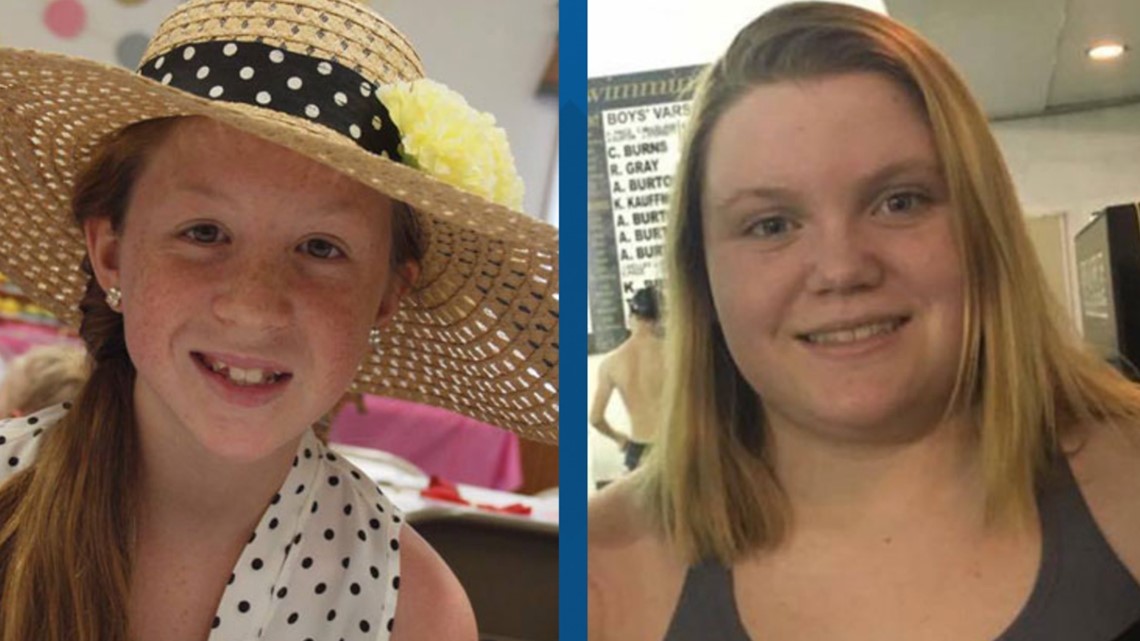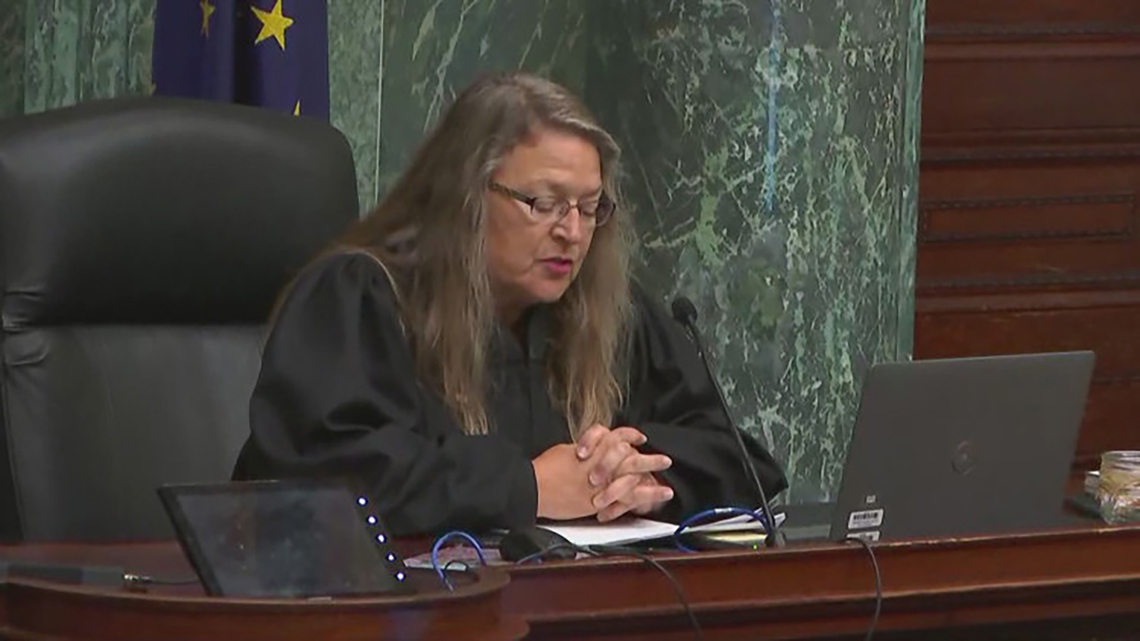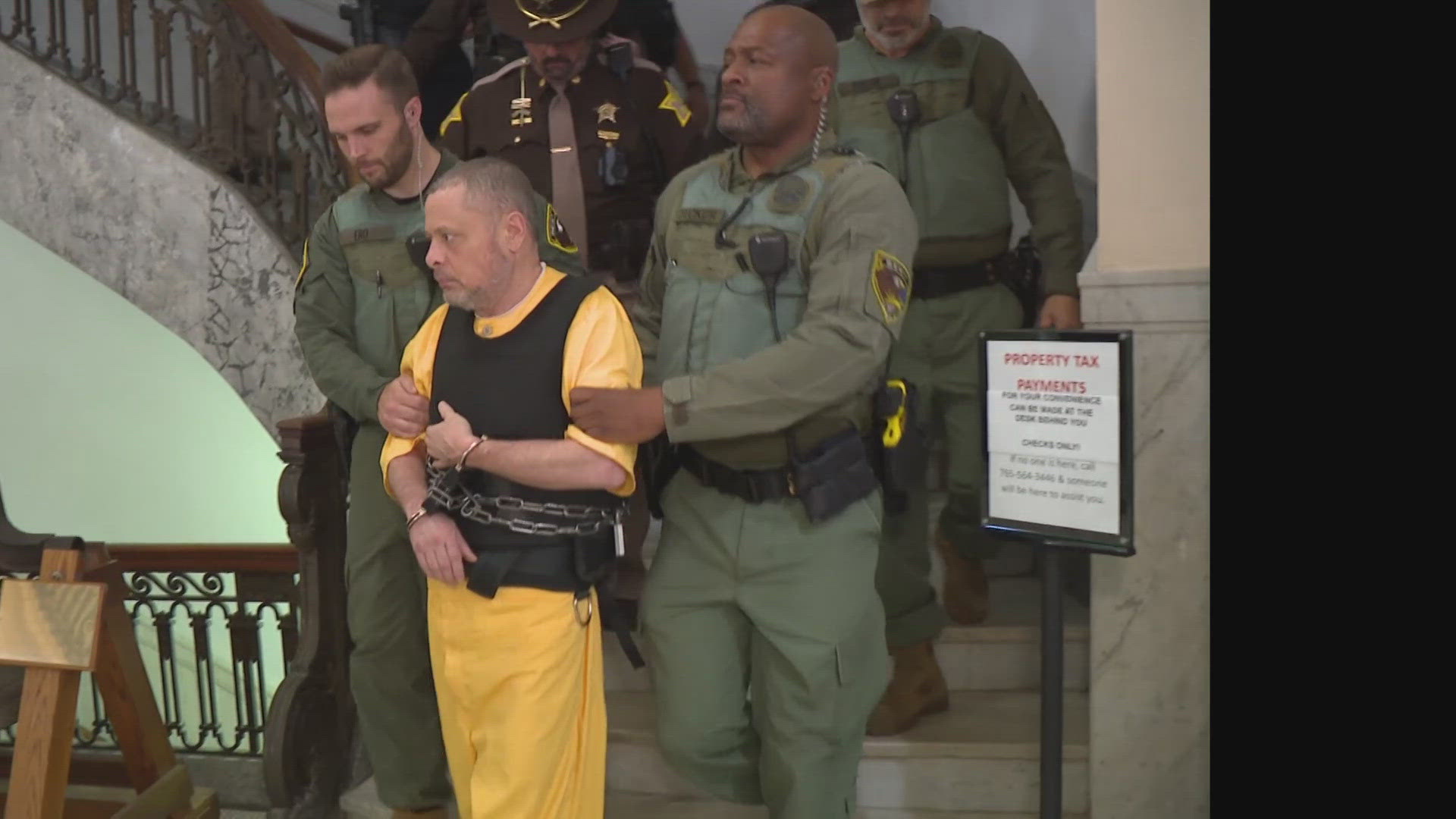DELPHI, Ind. — New developments in the Delphi murders case could delay plans for the trial to start next month.
Attorneys for suspect Richard Allen say they want the Indiana Court of Appeals to overturn two of the judge's rulings even before the trial starts.
Allen's attorneys don't agree with some of the Special Judge Frances Gull's recent rulings about what evidence can and can't be heard by a jury.
The defense team wants the Court of Appeals to review those rulings. They believe those rulings were wrong and violated Allen's constitutional rights and ultimately will lead to a second trial if Allen is found guilty.
The issues the defense is raising are critical to how the defense team plans to defend Allen and convince jurors he did not kill 13-year-old Abby Williams and 14-year-old Libby German.
The girls were killed in February 2017 after going for an afternoon walk near the Monon High Bridge in Delphi, Indiana.
Allen was arrested in October 2022. He pleaded not guilty.


The two issues the defense is raising — Gull's decision to let jurors hear about alleged confessions and a ruling to prevent them from hearing the defense theory that someone else killed the girls.
Allen's defense team believes Gull got it wrong when she decided to allow a jury to hear more than 60 confessions Allen allegedly made to family, prison officials and his psychologist while being held in a state prison after his arrest.
The defense has argued those confessions were not voluntary and made by Allen when he was severely mentally ill.
Gull disagreed.
In a new motion filed Monday, Allen's attorneys say the judge's decision to allow a jury to hear those confessions denies Allen his Constitutional rights.
The defense says if Allen is found guilty, this issue would likely come up on appeal and lead to the conviction being overturned, with a new trial following after that.
"Do we really want to take a chance of having to redo this whole trial again if this gets reversed?"
That's the question defense attorney Brad Banks said Allen's defense team is essentially asking by filing the new motion. They note a second trial would bring significant expense and time, dragging out the case for everyone.
Allen's attorneys want the Court of Appeals to look at Gull's rulings on what can be heard at trial now, not after there's a a verdict.
Banks said historically, that's usually not how it goes.
"This is normally the type of case they would say you have to wait until after your trial and then you can appeal these issues," Banks said.
Could this time be different?
Banks thinks it's possible, given the costs and logistics of one trial, let alone a second one, if the verdict is appealed.
"This is a set of facts that is certainly very unique and may lend itself to being heard prior to the trial," said Banks.
If that's the case, Banks said expect to see either side ask the court to hit pause on the Oct. 14 trial date.
Another issue raised by the defense in this new motion, Allen's defense team says with Gull's decision to prohibit any mention of the defense's alternate murder theory or suspects.
"Richard Allen's defense was completely gutted," the attorney's wrote.
Last month, during pretrial hearings, the state argued hearing about alternate murder theories and suspects would only confuse a jury.
Gull ultimately agreed.


Now, this new motion asks Gull to give the defense the OK to also take this ruling before the Court of Appeals and let the justices decide whether that information should be allowed at trial.
"That's kind of where they find themselves right now and why you see them sort of aggressively trying to fix that so they can try to put their theory of the case back in front of the jury," said Banks.
In the recently filed motion, Allen's attorneys claim Gull's latest rulings violate Allen's constitutional rights, citing the 5th, 6th and 14th Amendments, as well as multiple sections of the Indiana Constitution.
On Sept. 4, Special Judge Frances Gull ruled that Allen's attorneys would not be allowed to talk about a Nordic pagan religion known as Odinism, or other possible suspects, which are key items to their defense.
Allen’s public defenders claim police arrested the wrong man. They say multiple people with ties to Odinism were responsible for the murders, and Allen's attorneys had planned to tell a jury about those alternate suspects at trial.
The defense team wrote they're starting the appeal process, not to "unnecessarily delay the trial," but because they believe any conviction would ultimately be overturned and end up with a second, very expensive trial.
"Start over from scratch, new jury, new trial, all over again," said Banks.
If you feel like you've heard these issues before, that's because you have — they're the basis of the defense strategy.
So what's next? It could take more than a month to get an answer and the trial is set to begin in five weeks.
If the judge says "no" to this request for an appeal, then the defense will likely try again to get these issues in again during trial. If they are again turned down and Allen is convicted, you can expect to hear this all argued again in a later appeal process.

